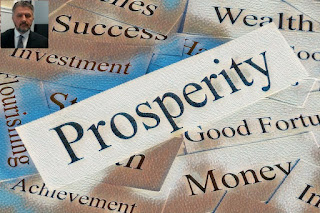The Power of a Growth Mindset
In the pursuit of success and self-improvement, the mindset we adopt plays a pivotal role in shaping our experiences and outcomes. The concept of a growth mindset, popularized by psychologist Carol Dweck, has garnered significant attention in recent years for its transformative impact on individuals' lives. A growth mindset is the belief that our abilities and intelligence can be developed through effort, learning, and perseverance. Embracing failures as learning opportunities is an integral aspect of this mindset. Instead of seeing failures as evidence of fixed limitations, a growth mindset recognizes that they are stepping stones towards improvement and eventual success.
Embracing Challenges
One of the fundamental tenets of a growth mindset is the willingness to embrace challenges. Rather than shying away from difficulties or viewing them as threats to our abilities, a growth mindset encourages us to see challenges as opportunities for growth and development. When faced with a challenging task or goal, individuals with a growth mindset approach it with courage and curiosity. They see it as a chance to stretch their abilities, learn new things, and become better versions of themselves.
This approach to challenges is empowering because it shifts the focus from the outcome to the process. Instead of fixating on the end result, individuals with a growth mindset concentrate on the effort they put in, the strategies they employ, and the lessons they learn along the way. This mindset fosters a sense of resilience and adaptability, enabling individuals to navigate through obstacles with a positive and proactive attitude.
Persistence
Failure is an inherent part of any journey towards success. With a growth mindset, failures are seen as temporary setbacks rather than permanent defeats. When confronted with failure, individuals with a growth mindset don't give up or lose heart. Instead, they view failure as an opportunity to learn and improve.
This perspective on failure fuels their persistence and determination. They understand that setbacks are part of the learning process, and each failure provides valuable feedback and insights. Armed with this knowledge, they are more likely to try again, armed with new strategies and a better understanding of what works and what doesn't.
The power of persistence is exemplified by the stories of many successful individuals who encountered multiple failures before achieving greatness. Thomas Edison, the inventor of the light bulb, famously said, "I have not failed. I've just found 10,000 ways that won't work." Edison's unwavering persistence and growth mindset allowed him to keep pushing forward despite numerous setbacks, eventually leading to his groundbreaking invention.
Continuous Learning
A growth mindset entails a deep love for learning and a hunger for knowledge. When faced with failures, individuals with this mindset actively seek to understand what went wrong and why. They analyze their actions, strategies, and decisions to identify areas for improvement.
In contrast to a fixed mindset, which might interpret failure as a sign of incompetence, individuals with a growth mindset see it as an opportunity for self-reflection and learning. They don't shy away from seeking feedback, and they welcome constructive criticism because they know that it can provide valuable insights to help them grow.
This thirst for continuous learning is not limited to failures alone. With a growth mindset, individuals approach every situation with a sense of curiosity and openness. They see even routine tasks as opportunities to expand their knowledge and skillset. This mindset fosters a sense of humility, acknowledging that there is always more to learn and discover.
Fear of Failure Diminishes
Fear of failure is a common barrier that holds many individuals back from pursuing their dreams and aspirations. However, with a growth mindset, the fear of failing diminishes significantly. Embracing failures as part of the learning process reduces the stigma attached to it.
When failure is no longer seen as a reflection of one's inherent abilities but rather as a natural part of the journey to success, individuals become more willing to take calculated risks. They are more likely to step outside their comfort zones, try new things, and pursue ambitious goals because they understand that even if they fail, they will gain valuable experience and insights.
This shift in perspective is liberating and empowering. It liberates individuals from the paralyzing fear of making mistakes and empowers them to take charge of their own growth and development. It encourages innovation and experimentation, key ingredients for achieving breakthroughs and pushing the boundaries of what is possible.
The power of a growth mindset lies in its ability to transform our relationship with failure and challenges. Embracing failures as learning opportunities enables us to view setbacks with resilience and persistence. The love for continuous learning fuels our personal and professional growth, while the diminishing fear of failure empowers us to take bold and innovative steps towards success. By cultivating a growth mindset, we can unlock our full potential and lead a fulfilling and purposeful life, characterized by continuous improvement and a willingness to embrace the unknown.




Comments
Post a Comment